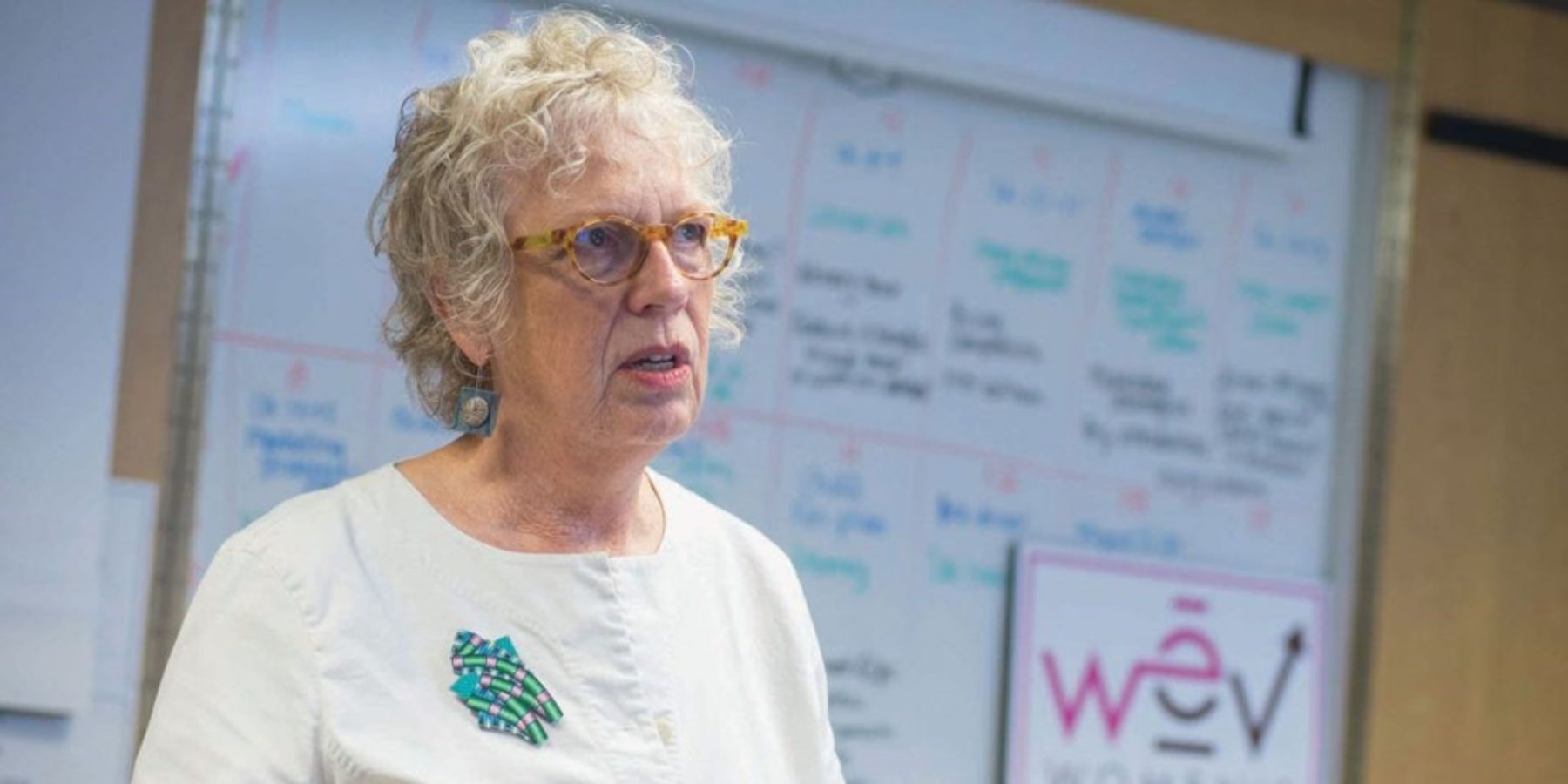- Business Resources
-
-
More Resources
-
Have Questions?
-
- Financial Empowerment
-
-
more resources
-
have questions?
-
- Support WEV
- About WEV
-
-
More About WEV
Meet WEV’s Team
-
Have Questions?
-
- Topmenu
-
30 years ago, Women’s Economic Ventures launched its first program.
When Marsha Bailey founded it, the organization was a purely lending program, and entrepreneurs could get up to $1,500 if they formed a borrowing group to hold themselves accountable.
“We found in pretty short order that $1,500 wasn’t a lot of money,” Bailey said.

Marsha Bailey founded Women’s Economic Ventures in 1991. (Pacific Coast Business Times file photo)
WEV quickly expanded to fill the need it saw in its community. Since 1991, it has provided business training and consulting to nearly 19,000 people in Santa Barbara and Ventura counties. It has made more than $6.4 million in business loans and helped more than 5,000 businesses start or expand. Those businesses have generated about $770 million in annual sales and created nearly 12,000 jobs in the region.
When the organization started, George H.W. Bush was in office, and entrepreneurship wasn’t yet a buzzword. People were becoming more mobile, but at the same time, Bailey said, job security became weaker and more jobs were moved overseas. The economy was in recession and people were losing their jobs, often just before they would have been able to access their pensions.
A lot of women wanted training to help them start businesses, and so WEV started a six-week training program on how to form a business plan. It was called self-employment training, and one of the earliest meetings was in a room in the downtown Santa Barbara Library.
The meeting was so well-attended that Bailey heard the voices of people in the room from the staircase as she walked down to the meeting. “There was this really good turnout and it just continued to grow,” Bailey said.
That six-week program was lengthened as the organization found there was too much to cover in the time they had, and eventually became what is now WEV’s 14-week training program.
Much of the group’s resources went to helping women develop key business skills. Many of the women starting businesses were around 40, and they came from backgrounds where they didn’t have professional experience. Some were trying to figure out a new direction after getting a divorce, and others were trying to find a way to lift their households out of bad situations.
“A lot of those women weren’t re-entering the workforce,” Bailey said. “They were entering the workforce. They hadn’t had a job outside the house.”
In the 30 years since the organization started, the culture has changed. Women are starting businesses at the fastest rate ever, outpacing men, said WEV’s current CEO, Kathy Odell. Most of that is because of women of color, who are creating almost 90% of new women-owned businesses.
To keep up with the demand, WEV has adapted to become a more educational organization. Business training courses include financial management, communication, planning and general day-to-day management.
“It’s no longer just about starting a business,” Odell said. “It’s about being a woman in business.”
The organization has also expanded to be a more comprehensive business advisory source, giving clients advice on topics like how to handle e-commerce websites.
“Most colleges aren’t going to teach people how to run businesses that clear between $250,000 and $500,000, unless it’s through finance,” Odell said. “That’s where we come in.”
The organization is also working to increase Latina entrepreneurship in the area. WEV is offering its materials in English and Spanish, and it added more bilingual staff, as well as high-level bilingual managers.
WEV is expecting a new wave of businesses after the pandemic ends. Odell said that the pandemic has forced a lot of people to reconsider how and where they work, as well as how they can meet their family’s needs. As schools and daycares closed, many women had to juggle working from home while supervising their children’s education.
“Women are driving our economy,” Odell said, “but we still have some unique challenges.”
